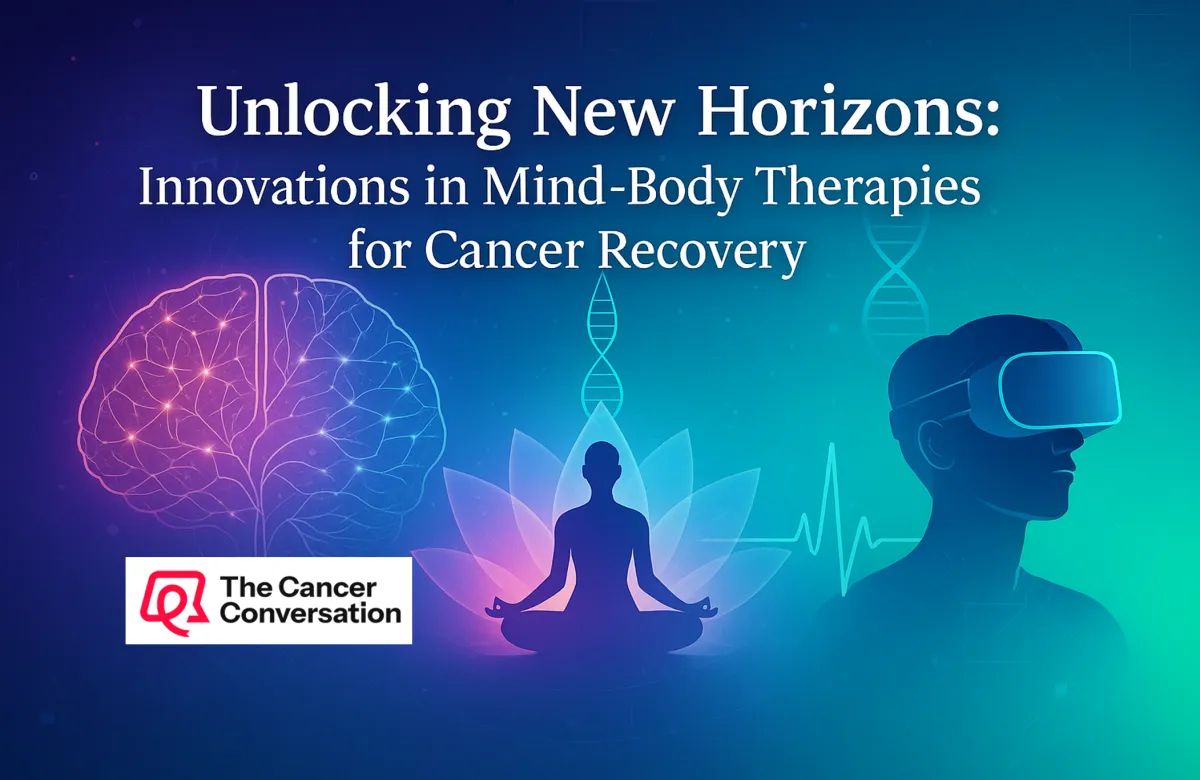
Unlocking New Horizons: Innovations in Mind-Body Therapies for Cancer Recovery
Imagine a world where the mind and body work hand in hand to support cancer recovery. For those facing the challenges of cancer, this isn't just a dream—it's a reality unfolding with every new advancement in mind-body therapies. Picture yourself harnessing the power of meditation, neuro-linguistic programming, and hypnotherapy to build emotional resilience and enhance your well-being. Join our community and discover how these therapies can complement your recovery journey, bringing hope and strength to each step you take. Learn more about how mind-body practices reduce cancer-related symptoms.
Harnessing Mind-Body Therapies

Mind-body therapies combine mental and physical practices to improve health and well-being. These therapies can play a significant role in cancer recovery by enhancing emotional resilience and reducing stress.
Meditation for Emotional Resilience
Meditation can significantly boost emotional resilience for those undergoing cancer treatment. Through regular practice, individuals can learn to focus their thoughts, reduce anxiety, and improve overall mental health.
Start with short sessions: Begin with 5-10 minutes daily, gradually increasing as you become more comfortable.
Focus on breathing: Concentrate on your breath to anchor your thoughts and reduce stress.
Consistency is key: Set a regular time for meditation to create a sustainable habit.
Research shows that meditation can lead to a calmer mind and a more positive outlook, which is crucial during cancer recovery. Read more about meditation's impact on emotional resilience.
NLP in Cancer Care
Neuro-Linguistic Programming (NLP) offers another powerful tool for cancer care. By reshaping thought patterns, NLP techniques can help patients manage stress and improve their emotional state.
NLP techniques can involve exercises like visualization, where patients imagine themselves in a peaceful place or achieving positive outcomes. This method can foster a more optimistic mindset and greater control over emotions.
Visualization: Creates a mental environment for calmness and hope.
Positive reframing: Encourages looking at challenges from a different perspective.
Anchoring: Builds positive associations with specific physical cues.
By incorporating NLP, individuals may find themselves better equipped to handle the emotional rigors of cancer treatment. Explore NLP's role in cancer care.
The Power of Hypnotherapy

Hypnotherapy harnesses the power of suggestion to bring about positive change, offering several benefits for those in cancer recovery.
Hypnotherapy Benefits in Recovery
Hypnotherapy can aid recovery by alleviating symptoms such as pain, anxiety, and nausea. It involves entering a relaxed state where the mind becomes more open to suggestions aimed at improving well-being.
Pain management: Helps reduce perception of pain by altering the mind’s focus.
Anxiety reduction: Calms nerves and promotes relaxation, which can improve treatment outcomes.
Nausea control: Can lessen the frequency and intensity of treatment-related nausea.
Through these benefits, hypnotherapy serves as a complementary therapy that supports traditional cancer treatments. Learn more about hypnotherapy in cancer recovery.
Integrating Hypnotherapy with Traditional Care
Integrating hypnotherapy with traditional cancer treatments can enhance overall care. By collaborating with healthcare providers, patients can create a comprehensive approach to recovery.
Consider these steps:
Consult with your doctor: Discuss the use of hypnotherapy alongside your current treatment plan.
Find a qualified hypnotherapist: Ensure they have experience working with cancer patients.
Track your progress: Keep a journal of sessions and outcomes to discuss with your care team.
This integration can lead to a more personalized and effective treatment strategy. Discover more about integrating hypnotherapy.
Building a Supportive Community

A supportive community can provide strength and encouragement throughout the cancer recovery journey. Engaging with others who understand your experience is invaluable.
Engaging with Caregivers and Loved Ones
Caregivers and loved ones are crucial to the cancer journey. Open communication and shared experiences can strengthen these relationships.
Share your feelings: Be open about your needs and emotions.
Seek support: Encourage caregivers to join support groups for shared experiences.
Express gratitude: Acknowledge their efforts and contributions.
Involving caregivers not only helps patients but also makes caregivers feel valued and empowered.
Joining Our Holistic Healing Webinar
Joining our holistic healing webinar can offer a wealth of information and support. This event provides insights into integrating mind-body therapies into your recovery plan.
Interactive sessions: Participate in Q&A sessions with experts.
Community connections: Meet others on a similar journey.
Practical advice: Learn actionable steps to incorporate therapies.
This webinar is an opportunity to engage with a community committed to holistic healing. Sign up today to enhance your recovery approach.
Join us and explore the possibilities these innovative therapies can offer. 🌟







